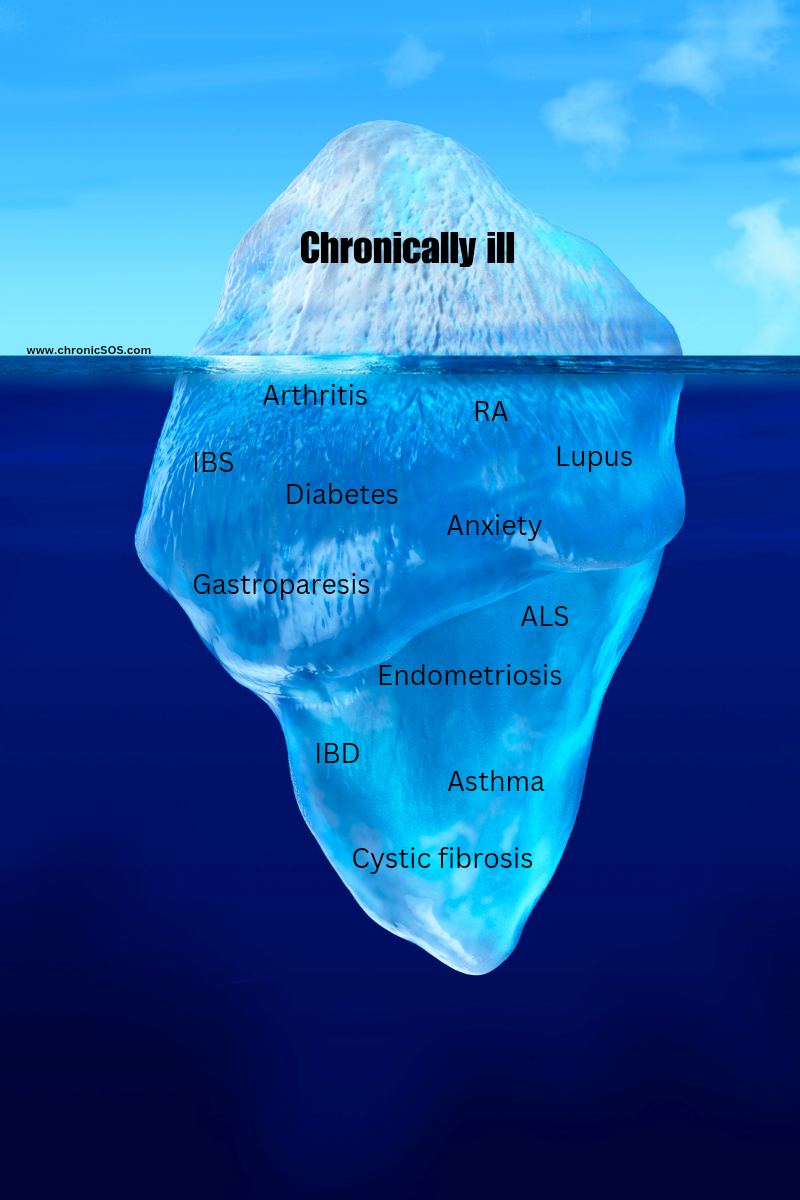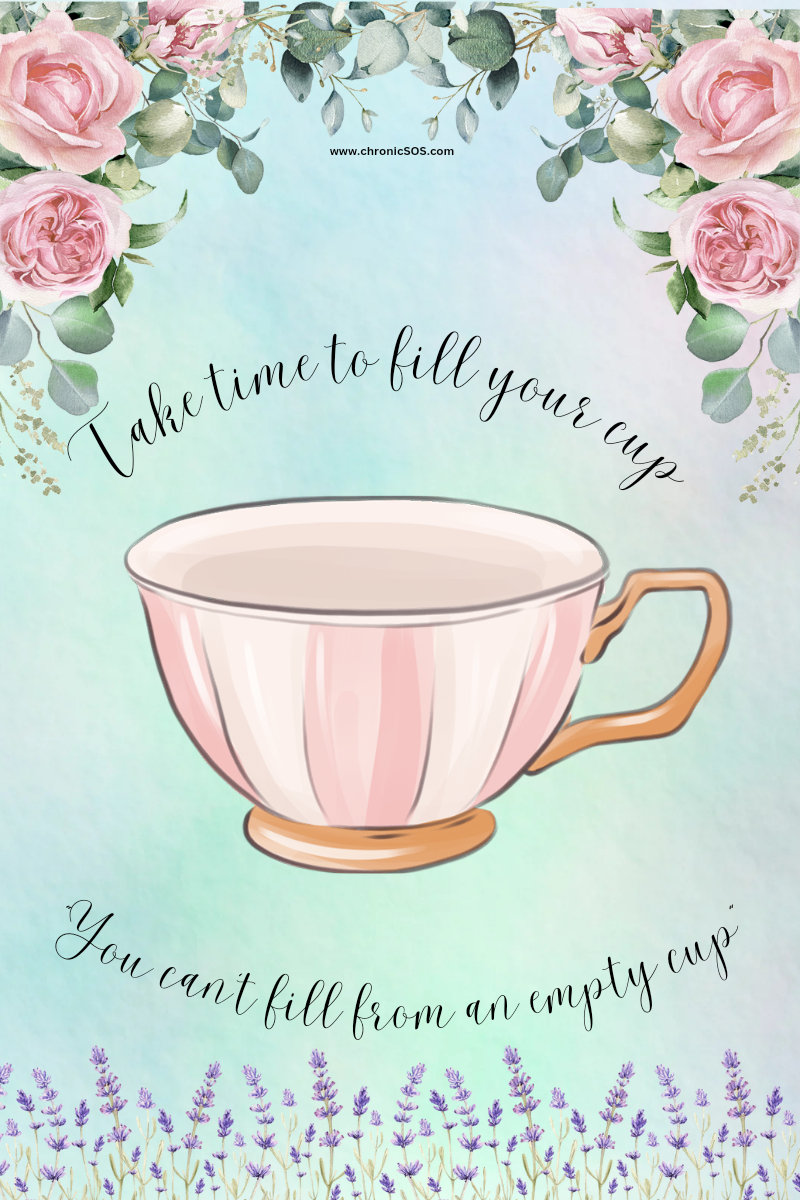Beginner's Guide to Supporting Chronically Ill Loved Ones
Alt text for screen readers here.
Chronic illness is intimidating.
It's overwhelming for people to experience alone and the need for a great support system is crucial! It can be just as confusing as it is intimidating - where do you even start? What do you do?
While there's often no clear answers and it varies depending on the individual, the condition, and so much more, but there are many things that are universally good to support your loved ones.
Not even close to naming half of them!
Listen to them and communicate well
I put this one first because it's the basis for any healthy relationship.
Listening and communicating openly and well is especially important to support someone with a chronic illness because they'll probably encounter people who don't listen to and believe them. Just having someone to talk to that actively listens can literally be the difference between life and death.
My life was full of confusing symptoms and doctors who didn't listen to me and had already decided what I was going to say before I opened my mouth. I felt like I was going insane as I would constantly describe everything, but they didn't listen, they only heard noise. I had a few close loved ones that listened to me and it helped give me the strength I needed to keep going. When I finally got to Dr. Mike (not the YouTube doctor), he listened to me and openly discussed everything. That 30 minutes of just listening and communication was the first step in saving my life.
Learn about the condition(s)
"Chronically ill" and "disabled" describe such a wide variety of conditions, situations, and people. Learning about the specific condition(s) not only signals that you care deeply about your spoonie, but helps prepare you for what you'll experience.
I always say that I like to know what I'm up against and what to expect and what to do. It saves me from a lot of panic when anything new happens! It also increases the quality of life if you can provide care for a loved one and they're able to remain at home instead of a care facility.
It's important to have accurate information too! When looking for the facts of the condition: symptoms, causes, treatment options, prognosis; it's also valuable to read about people who have similar conditions and those close to them. This allows you to learn about the human emotional and social aspects as well. It's eye-opening, as a disabled person myself, to read about others in similar situations and what they do and feel in their daily lives. It makes me feel like I'm part of a larger community instead of one of three people in my household.
Advocate for them
Unfortunately, a huge part of being disabled is having to advocate for yourself and it's a full time job to make sure that you're getting the best/right care. This takes a lot of time and energy - which is difficult or impossible to do some days when you have zero or negative spoons.
This is when a loved one has the chance to make a huge impact by advocating for you.
Avoid toxic positivity
We're probably all familiar with toxic negativity and aware of its harms, but toxic positivity should also be avoided. Toxic positivity is the attitude of believing that thinking positively has the ability to overcome all obstacles and often dismisses the very real limitations of the chronically ill in favor of "pushing through".
Positive thinking is beneficial and helpful but should be realistic and consider the needs of the person. For example, thinking positively about a situation can help avoid feelings of hopelessness about a situation, but no matter how hard you think positively, it won't turn stairs into a ramp that a wheelchair user can use.
Furthermore, toxic positivity sets the chronically ill and disabled up for failure: if they cannot do something due to their limitations, then it brings a sense of great failure and belief that they didn't work hard enough or believe in themselves enough or it would have happened.
It also encourages people to constantly push past their limits, which can be dangerous! Depending on the conditions, constantly ignoring and putting past your limits can result in: injuries, regression of progress made, flare ups, worsening of the conditions, and more! Gradually and slightly pushing past your limits in a controlled way that considers your current health can be beneficial and your therapists can help you set a safe amount - but the keywords are gradually and slightly!
Think positively - but realistically.
Take care of yourself too
If you've heard the saying, "you can't pour from an empty glass," that's the same concept. In order to best support your loved one, you must first take care of yourself. This means ensuring that you eat right, sleep well, stay hydrated, have regular checkups, and all that is needed to keep yourself in the best shape possible!
Additionally, it is a good idea to create several backup plans for the care and support of your loved one if you are unable to for some reason. It is also helpful to consider regular therapy and counseling and plan for the ability to take short breaks - especially if you are a primary caregiver! Being part of a group of several people who can support, care for, and help both you and your loved one is ideal and should not be viewed as a failure on your part, but a "more the merrier"!
Respect their privacy, boundaries, and limitations
Similar to avoiding toxic positivity, you must respect their limitations but also their privacy and boundaries. You probably think that your loved one is amazing and everyone should know about them; however, you must remember that it is their life and story to tell.
It's best to simply ask what parts - if any - they are okay with you sharing, what they want to keep private, what they do not want to discuss, and any of the specific terms and conditions they may have. Just as important - respect that!
For example, I am pretty open about my experience but I keep some information and topics private; I am fine with my friends and family sharing the basics of my story - but I don't want to share it with people who are pushy, invasive, and ask about what happened immediately after meeting me or are just generally rude!
Remove the "kid gloves"
Though you will probably be more careful with your loved one, be sure that you're not treating them as a child (unless they are a child); this issue is a specific variation of some of the previous points. Disabled people face a lot of infantilization and often aren't seen as adults, particularly when romantic relationships are involved. It's important that loved ones not fall into this mentality and treat their loved ones with the same respect as other adults, or the appropriate level of maturity/age for the individual.
This is vital for caregivers to keep in mind; when someone is in a carer position, it can be easy to coddle or baby their loved one. Carers must remind themselves that caregiving can be done without treating someone like a child. This means allowing them to independently perform tasks that they are able to safely do without rushing to do it for them. It's a simple act, but can have a major positive impact.
Final Thoughts
When a loved one becomes chronically ill/disabled, the support of loved ones is absolutely essential! It's a life changing event for everyone who loves them and it's important to learn how to best support them. It varies from person to person and their medical team will be able to provide more specific instructions, but hopefully this will give you a good foundation to build on.







